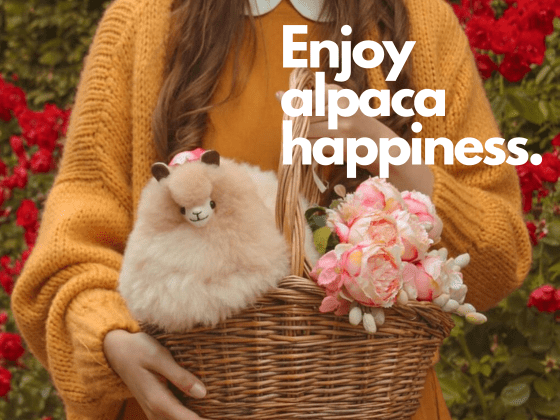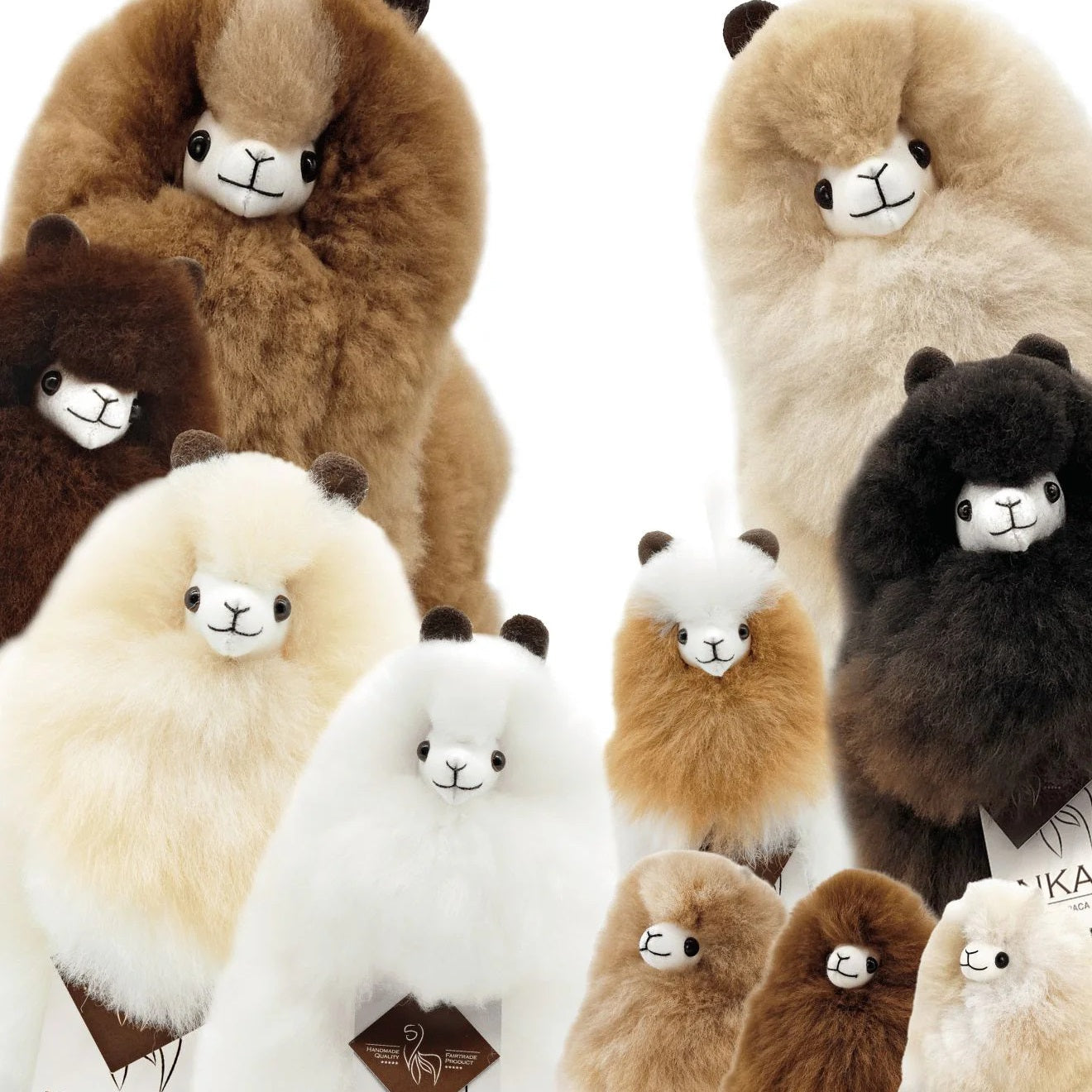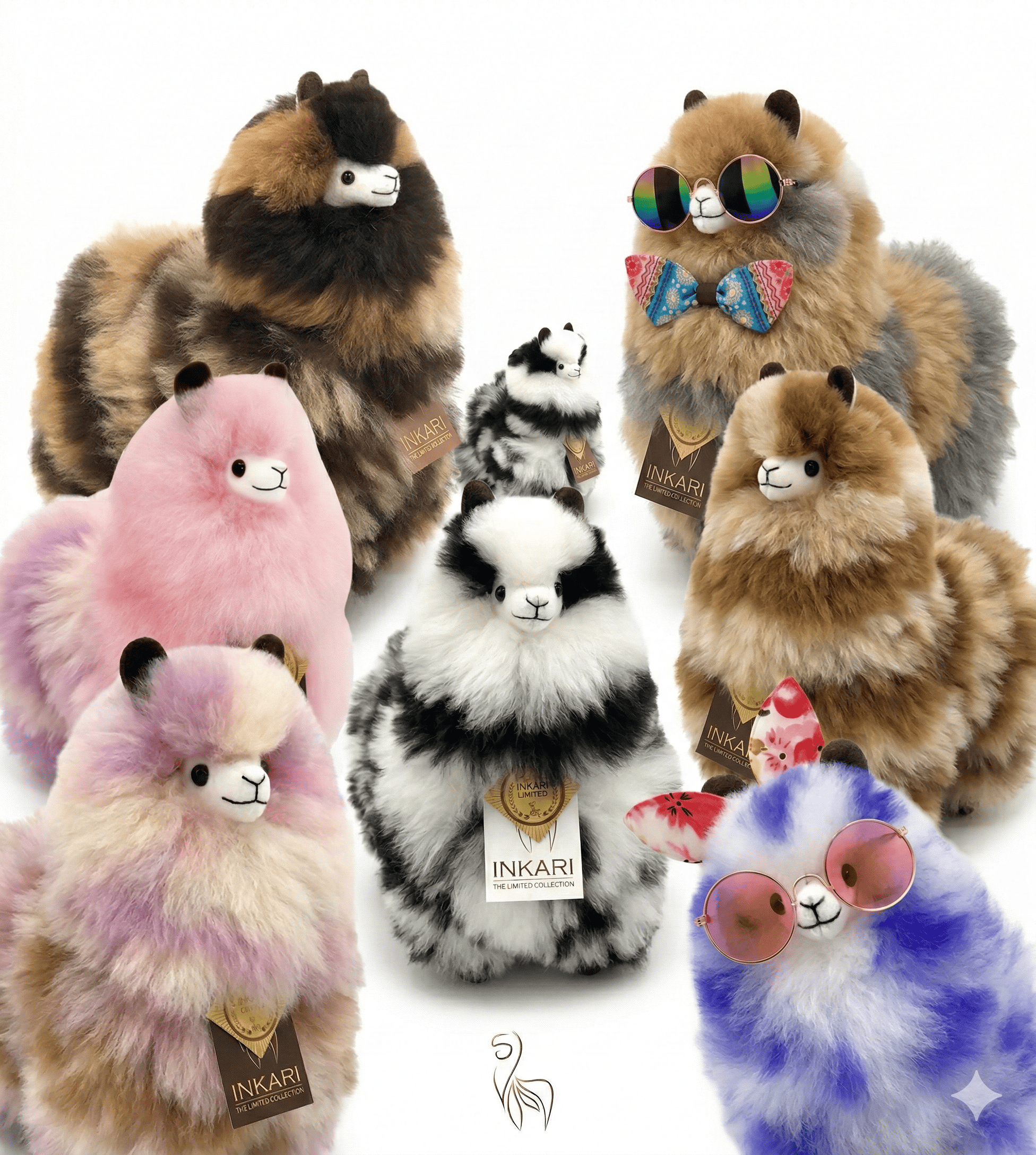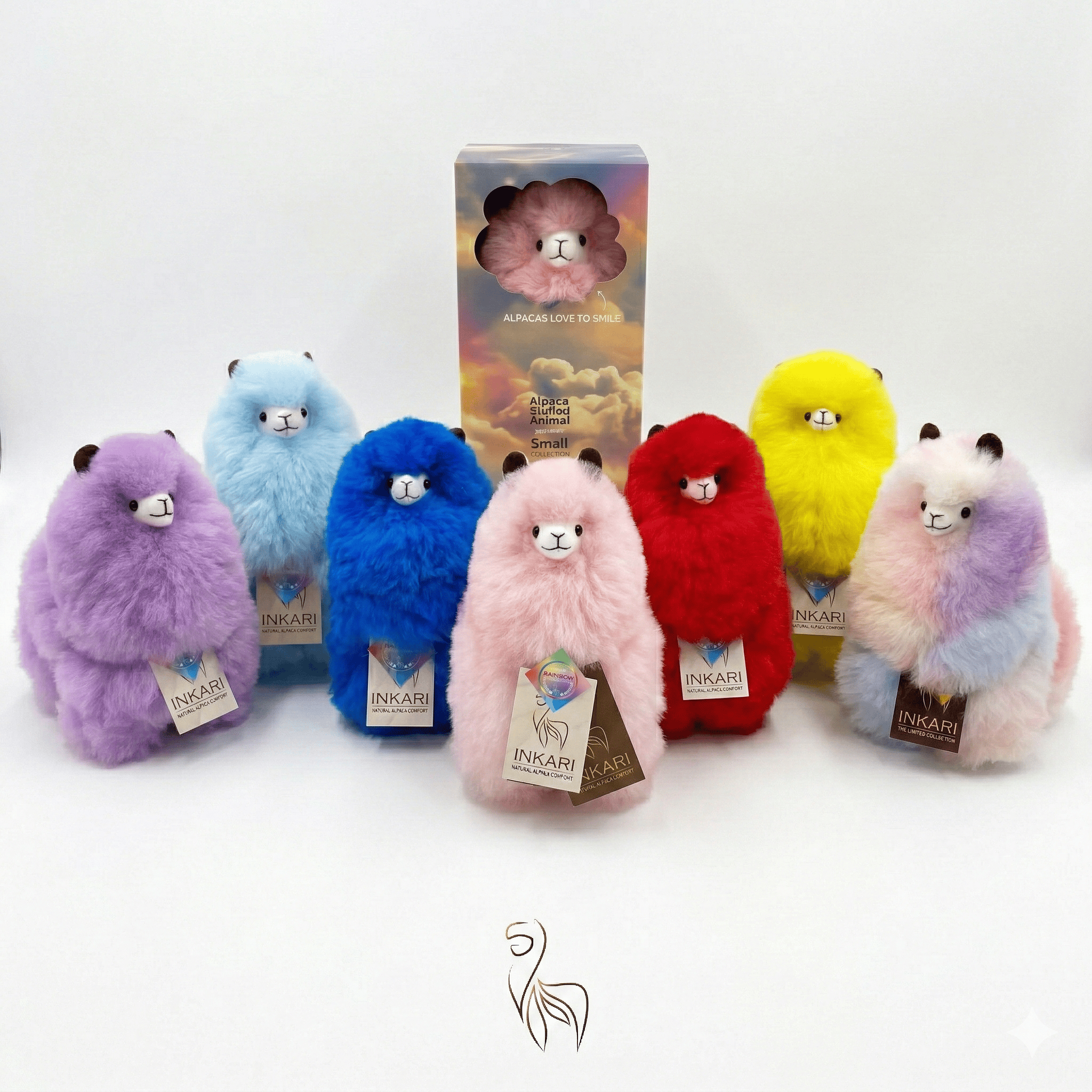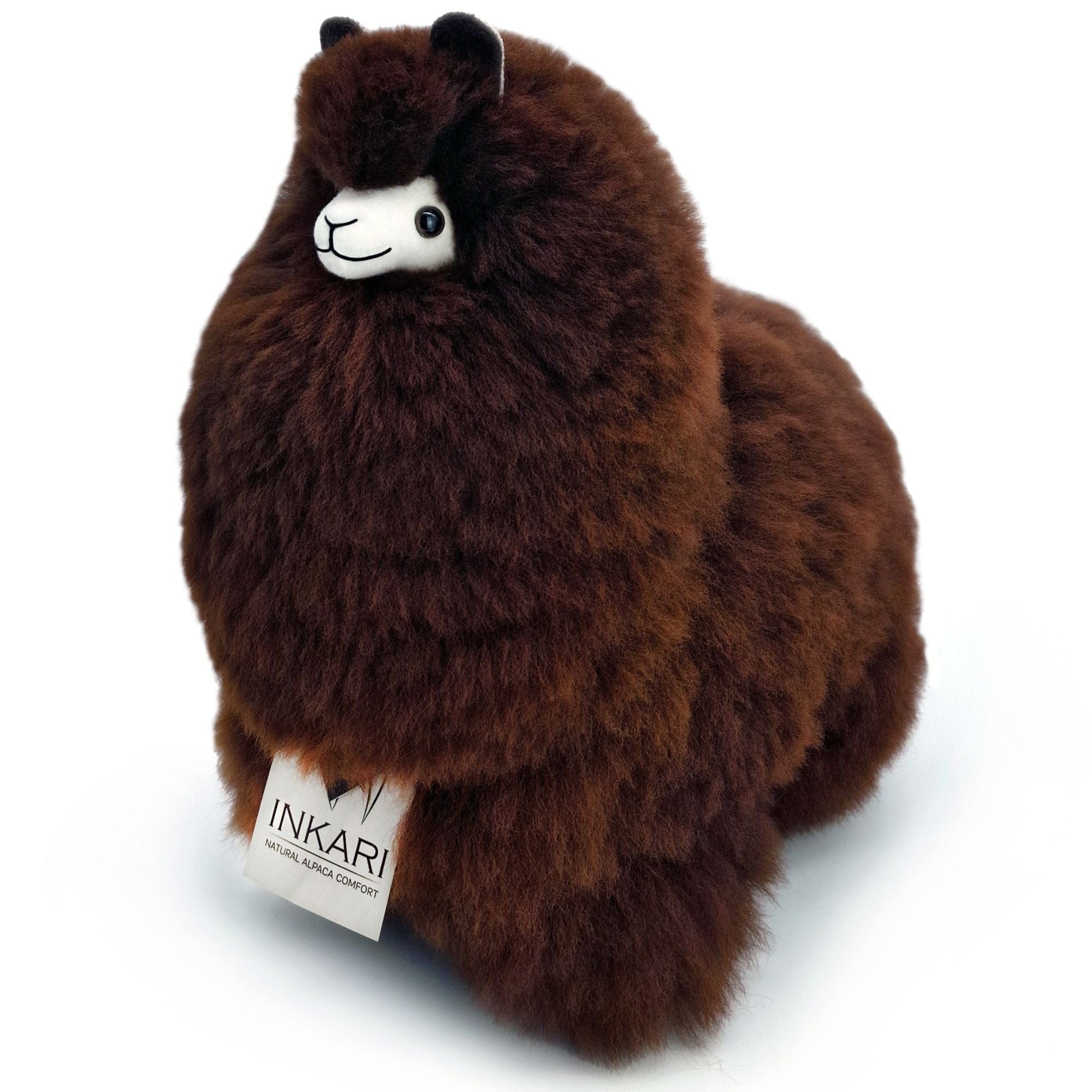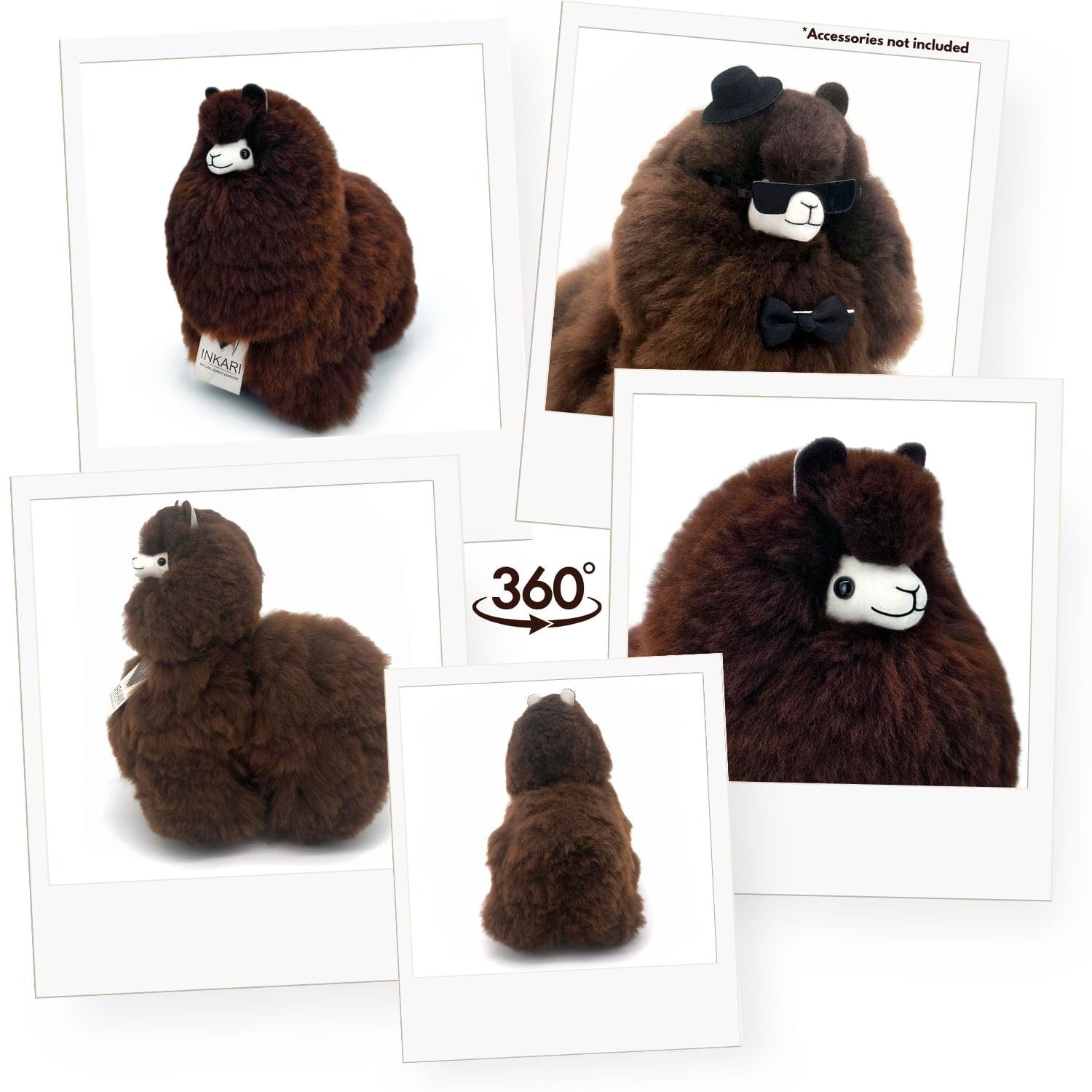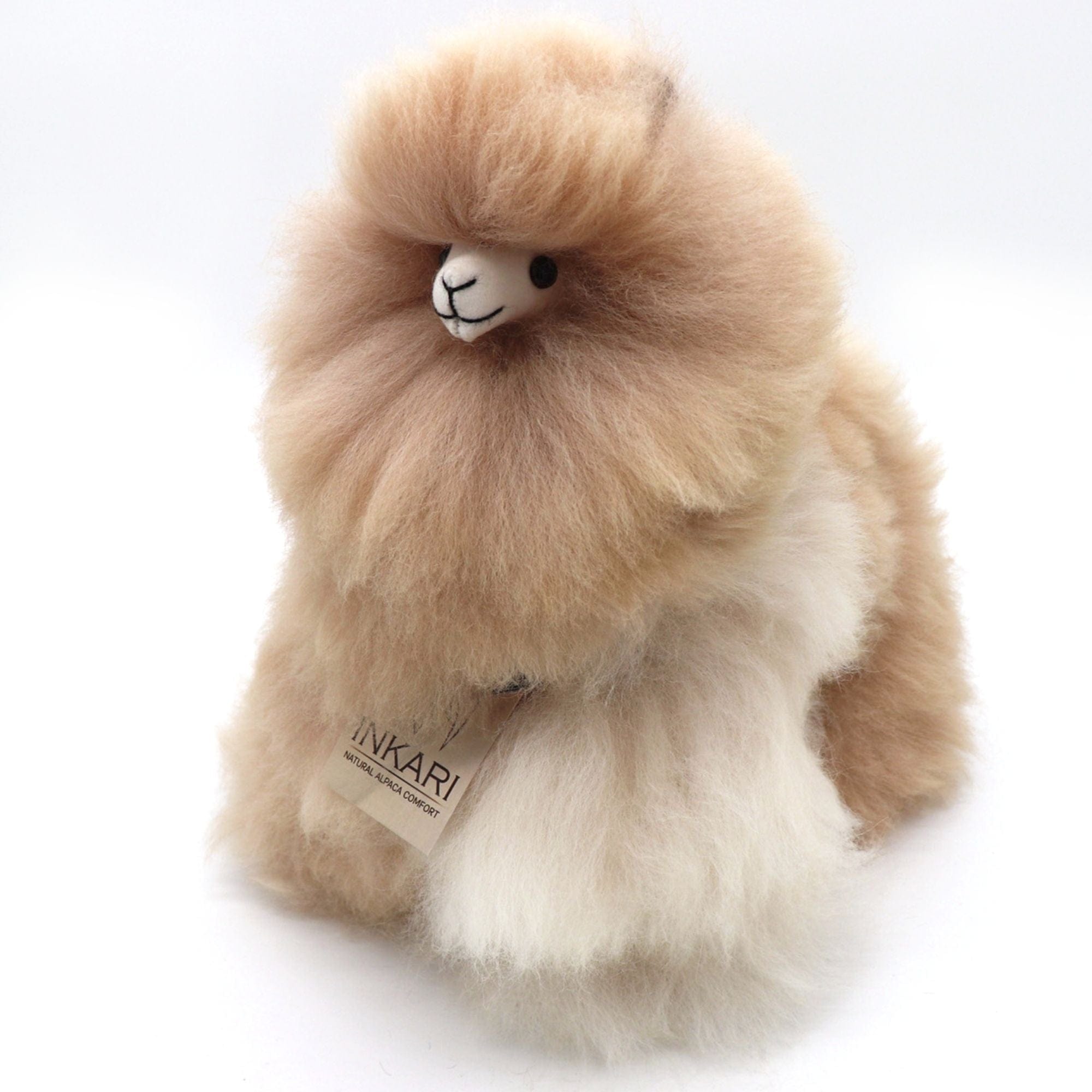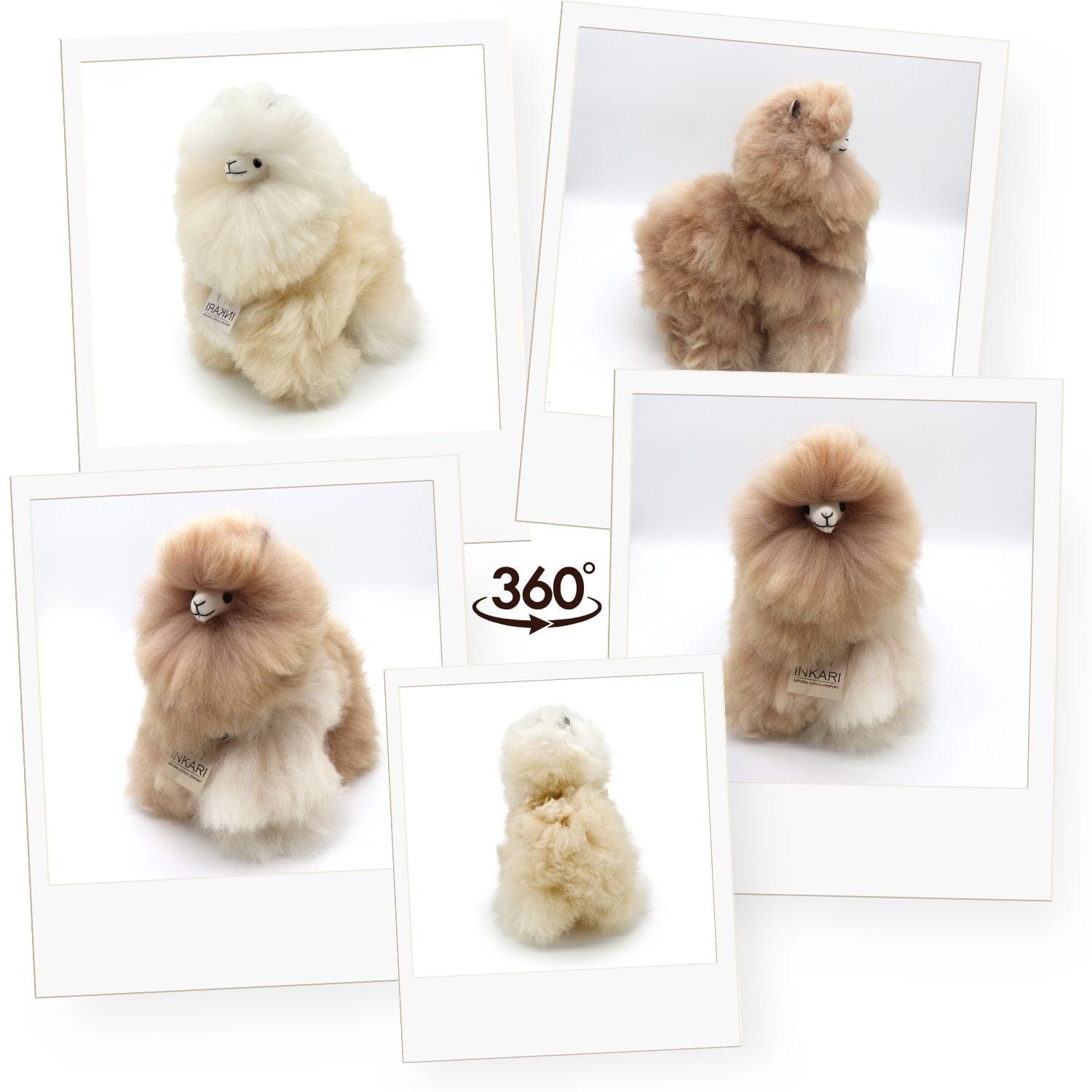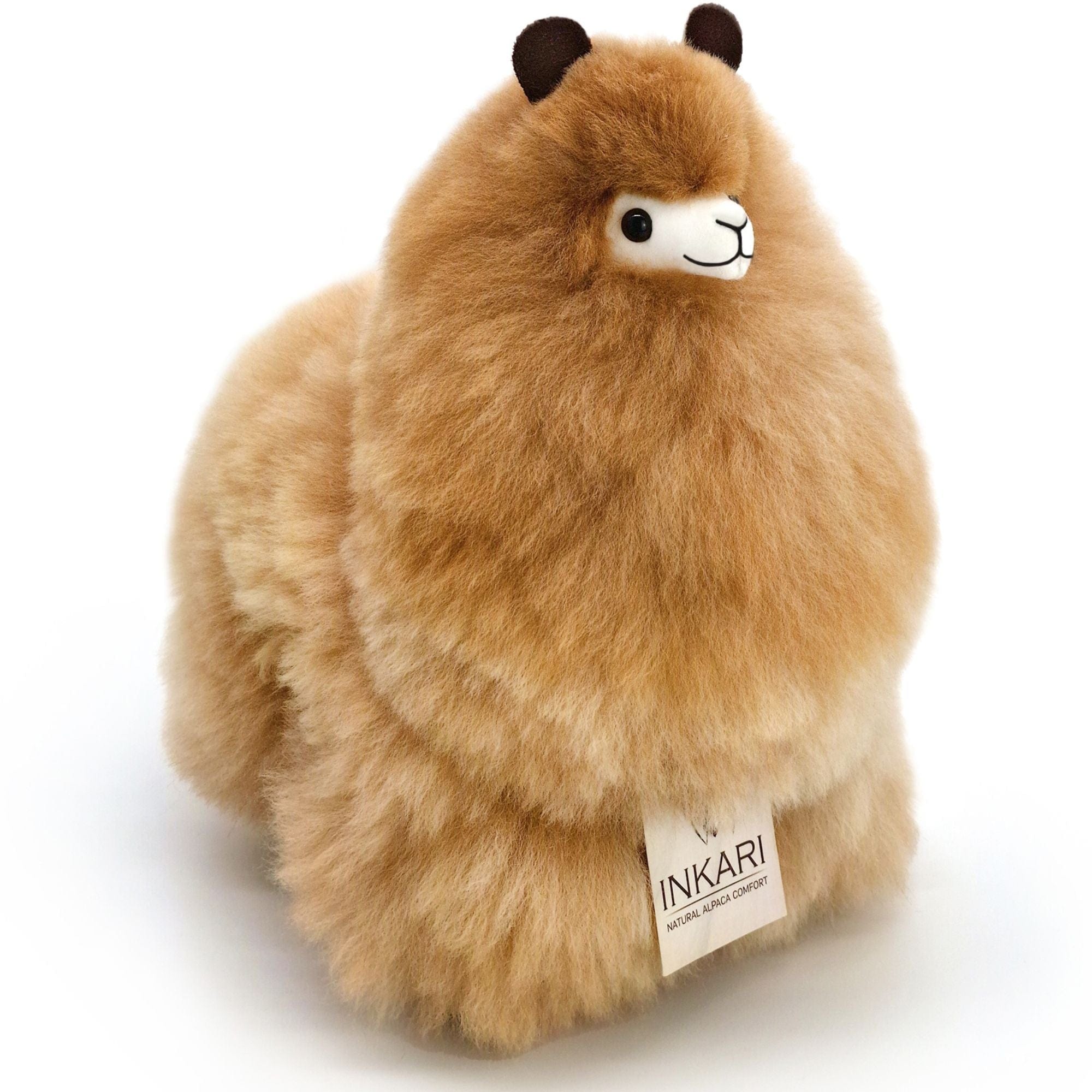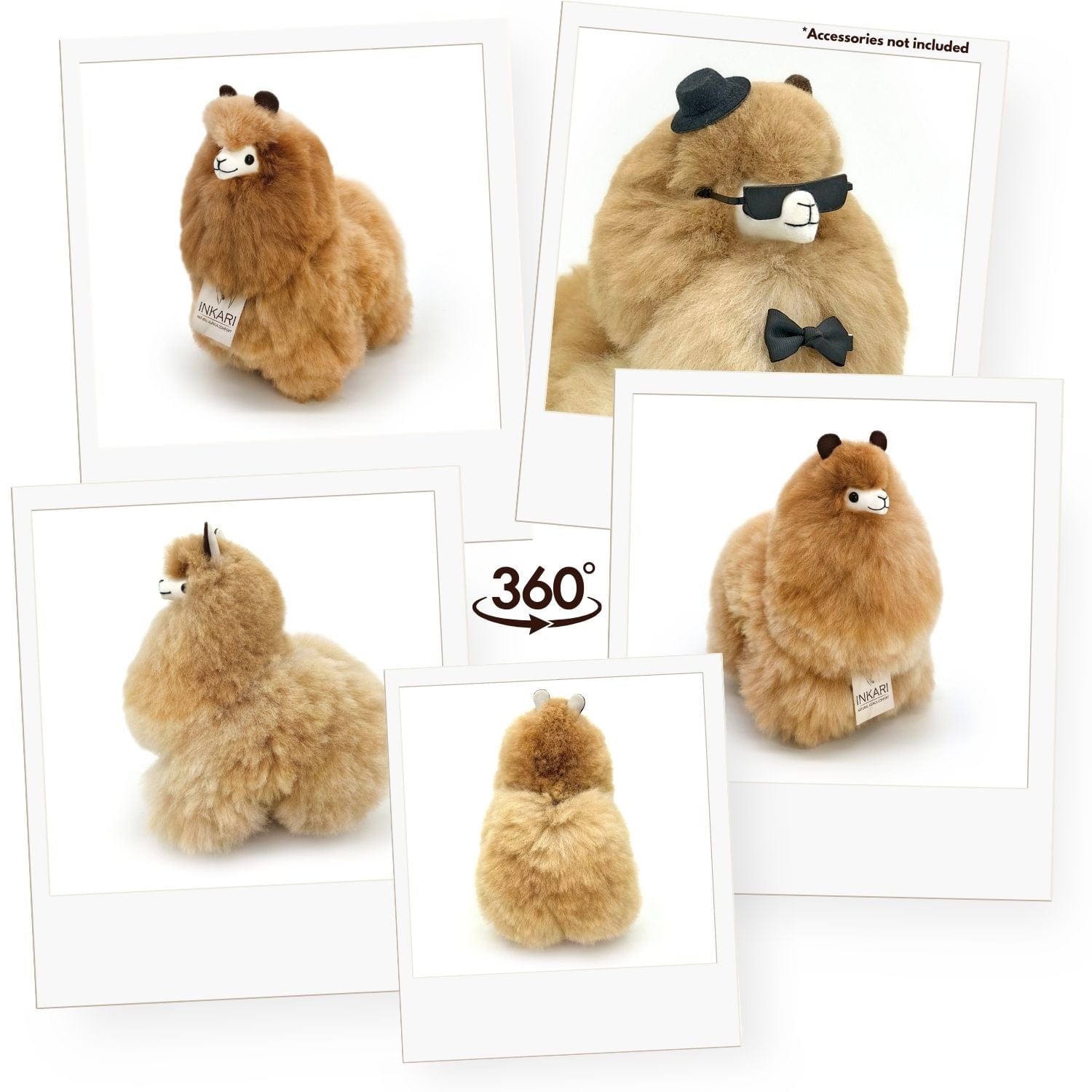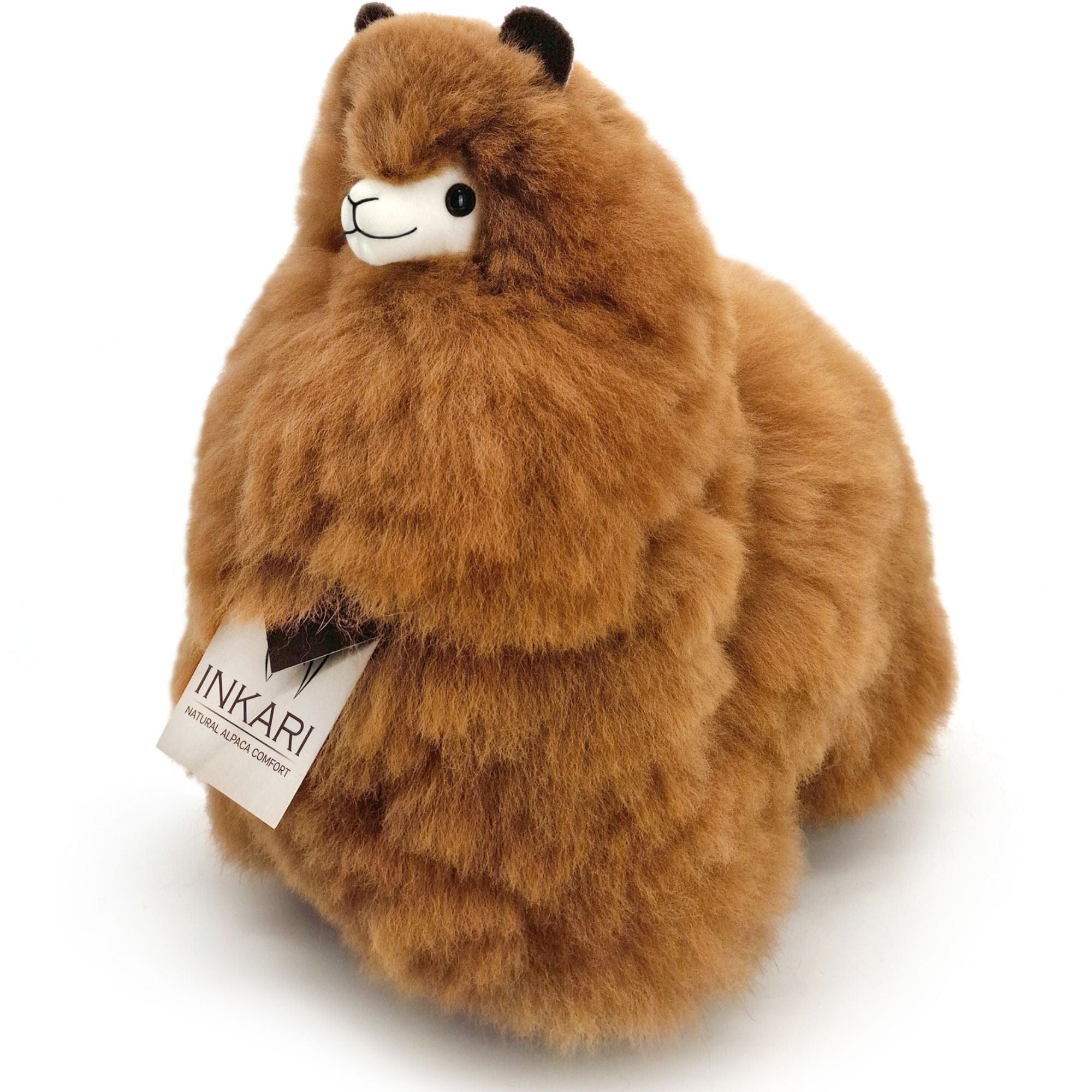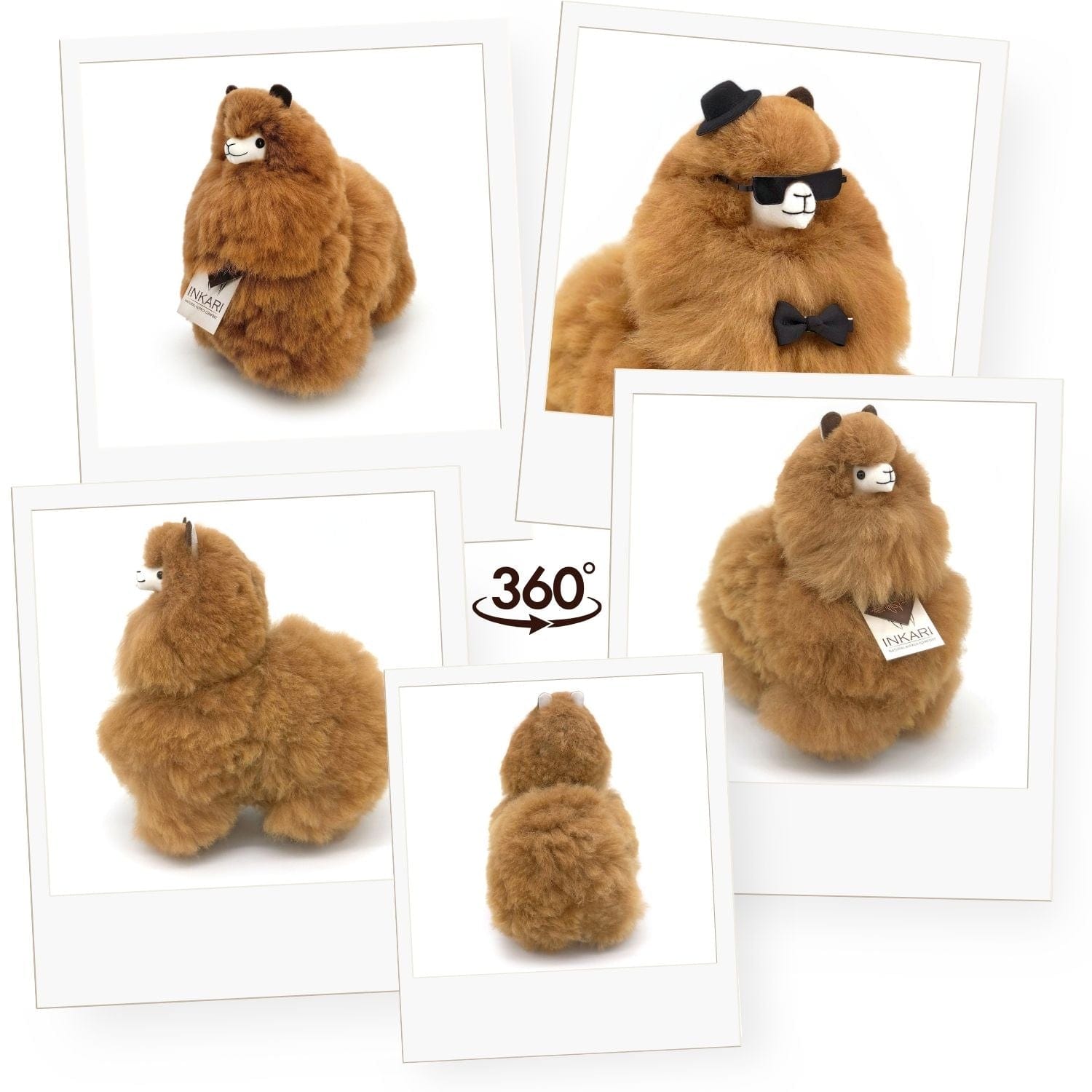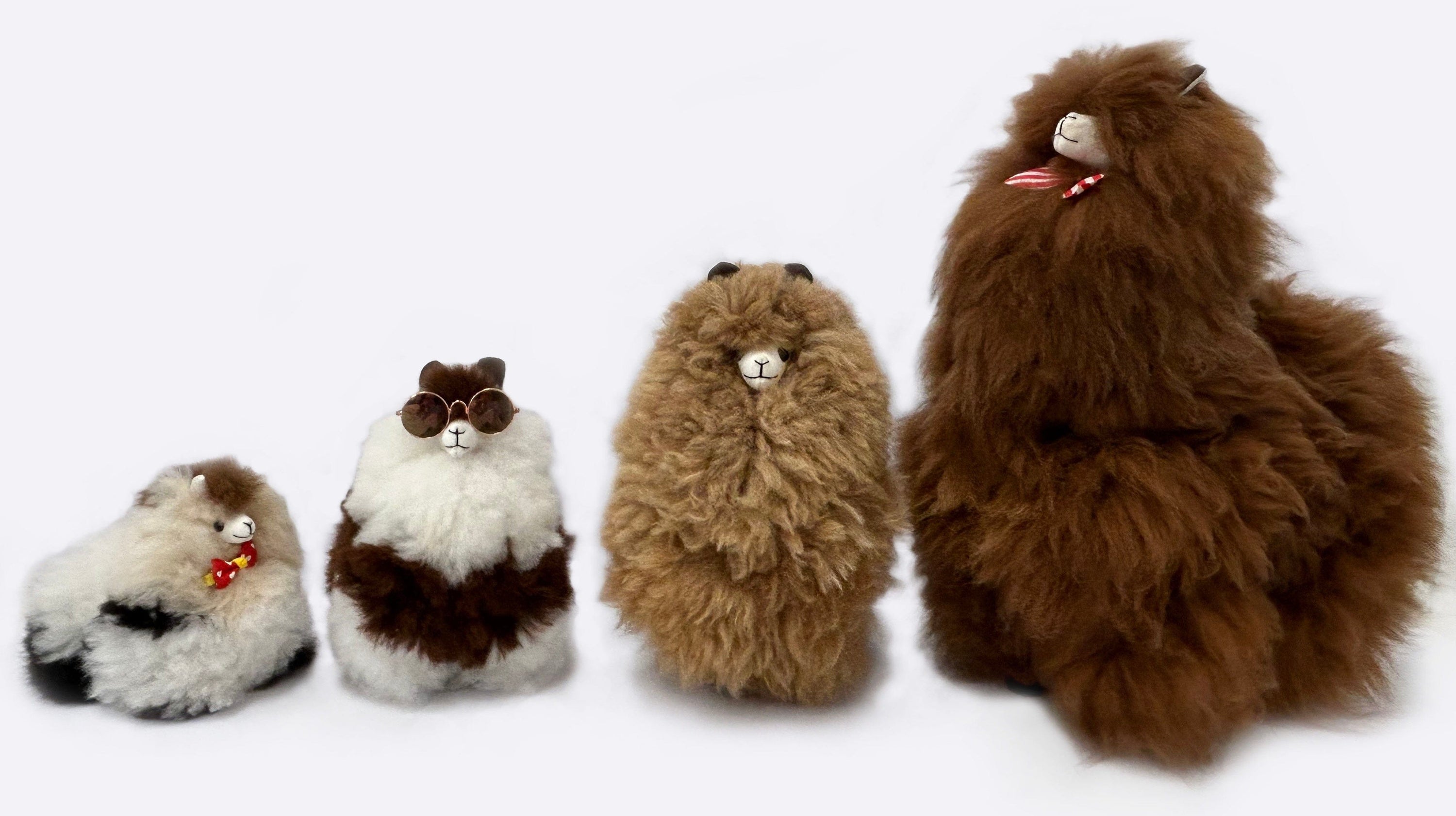THE ORIGIN OF ALPACAS
Our story starts in the Andean Highlands of Peru. In these mountains approximately 4 million alpacas roam free. For over 5000 years, the alpacas have been under the care of indigenous traditional herders in this region, who have been using their wool and other resources ever since.

From the day that an alpaca is born until the day it dies, it roams and grazes freely in its natural environment: the Andean Highlands. Every Spring the alpacas’ precious wool is shorn. This process is essential for the animal’s well-being, as it prevents the tangling of their wool, which causes sickness and leads to death.
Due to the extreme differences in temperature on a daily basis at 4000 meters altitude in the Andes, the fibers of the alpaca’s wool have developed some unique properties found nowhere else in the world, making it one of the most valuable types of wool available. Every 12-14 months an alpaca is shorn to use the precious yield of its wool. One well-bred alpaca produces about 5-7 pounds of wool each year. Read all about this on our educational page where we go in-depth on ‘Alpaca Wool’.
A NON-WASTE & FULL CIRCLE LIFE CYCLE
Wool production is the primary source of income for all alpaca breeders. The alpacas are raised and cared for, so that their wool can be shorn year after year, providing a livelihood for the shepherds, their families, and their communities. It is in the herders best interest to see as many crias (baby alpacas) as possible achieve maturity to become successful providers of fiber and future alpaca off-spring.
However, it unfortunately happens that some alpacas die prematurely due to: sickness, extreme weather, climate change, genetics, predators or an unfortunate accident. This is a very costly loss to the herder. He minimizes his loss by using the alpaca for food and sells the fleece for the use of alpaca fleece products.
Approximately 10% of the alpacas in the Andes annually dies due to the before-mentioned natural causes. With a total population of almost 4 million, this means that approximately 400.000 high quality alpaca pelts become available each year as residual products of alpaca breeding. These pelts can then be processed by Peruvian artisans into valuable products and given a second life so this beautiful and unique material doesn’t go to waste.
We like to refer to these alpaca products as cruelty-free alpaca products, because alpacas are never harmed intentionally for profit. The production process is completely different from products created by large farms where animals are bred for the purpose of selling their pelts only.
With alpacas it’s the other way around: the incremental and durable yields of their wool are far more valuable than the yield of a single pelt.
Even the shorn wool from a single year is more valuable than their pelt.
That’s why alpaca breeders would never kill an alpaca for its pelt, it’s the worst economic decision they could possibly make. At the end of the day, these economic factors are the most trustworthy factor that alpacas are treated well and never harmed intentionally.
THE INKARI ALPACA GUARANTEE
INKARI is built on our own personal experiences, relationships, values and network in Peru. We know firsthand how and where the alpacas live with their breeders and how the animals are treated with dignity and respect in their natural environment. We have never seen such a harmonious, mutually beneficial relationship between humans and animals.
We take pride in our relationships and collaborations with local farmers and artisans. And because we are in direct contact, we can confidently state that our alpaca products are cruelty-free.
All our alpaca products are handmade in Peru by local artisans who buy their fleece and pelts directly from the Andean breeders.
By choosing an INKARI product you’re supporting the indigenous alpaca breeding families ánd you provide yourself with a unique product that is completely cruelty-free and will bring you lots of alpaca happiness.
🤝 Interested in their stories? We made this video for you!
If you have any unanswered questions, feel free to contact us.
We’ll gladly tell you all there is to know about alpacas!

